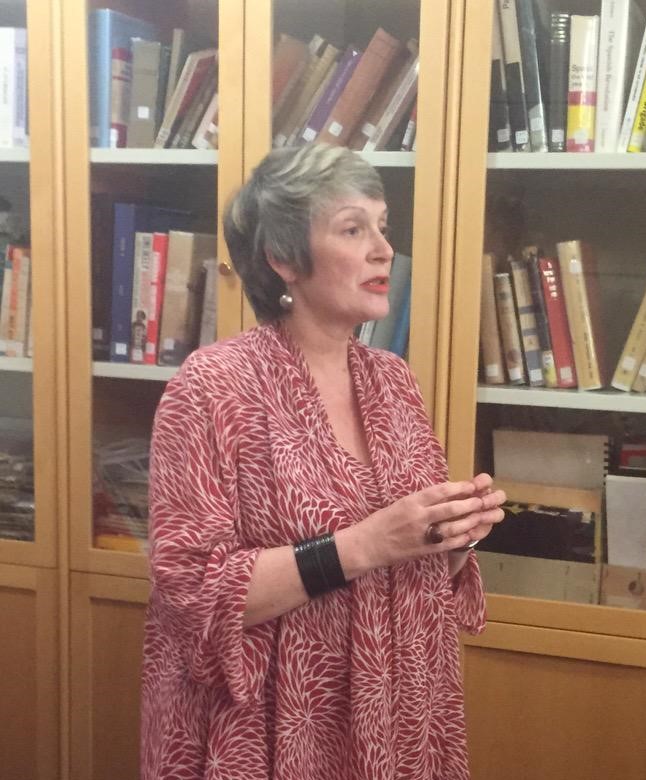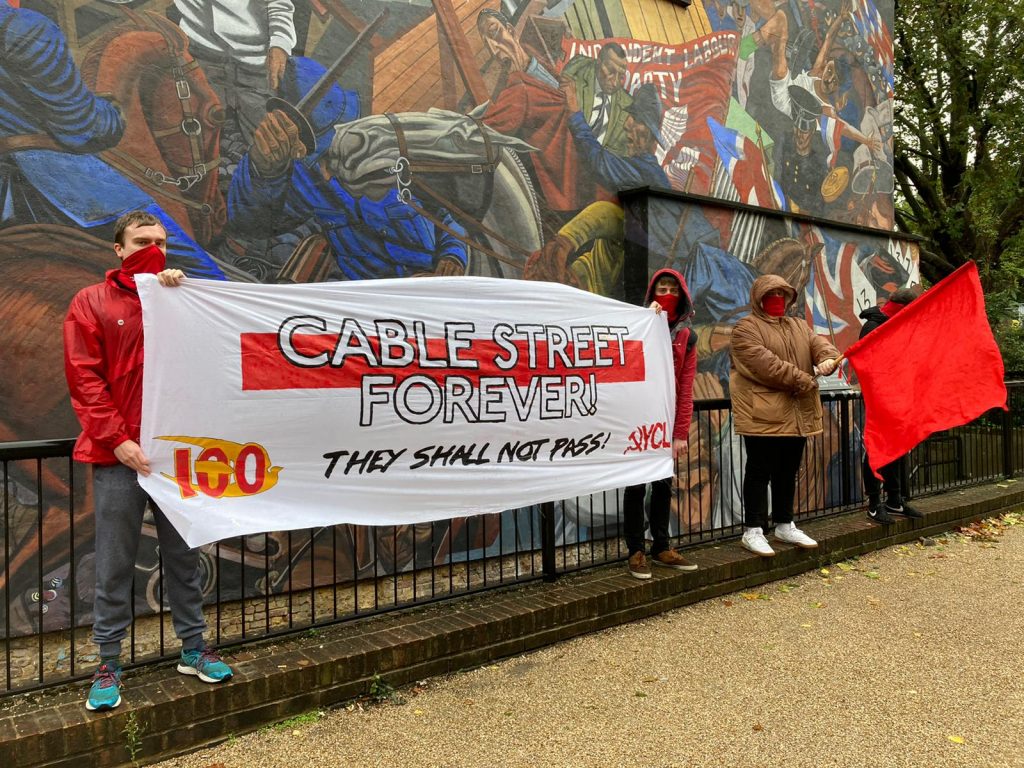The famous victory in 1936 is still felt today far beyond the East End, says Liz Payne. This article first appeared in the Morning Star.

The routing of Oswald Mosley’s black-shirted thugs and their police escort by 250,000 residents of London’s East End in Autumn 1936 had significance way beyond the local streets or the year.
The Communist Party and YCL’s rallying call (Daily Worker, 3 October 1936) read: “Against Fascism! For Freedom and Democracy! For the victory of the Spanish People! For the raising of the blockade which deprives them of arms! For Peace and Freedom in East London!”
The Battle of Cable Street was integral to the international struggle to defeat the open terroristic dictatorship of fascism, a system intent on stamping out the struggle for socialism, and the hopes and aspirations of working people everywhere for a better life.
By 1936, fascism had already shown its true colours. Japan had invaded Manchuria in 1931. From 1933, a stream of refugees bore witness to the nazi concentration camps, torture chambers and virulent racist horrors.
News of Mussolini’s undeclared war on Abyssinia (modern-day Ethiopia) from late 1935, told of a people bombed and gassed without mercy in their own land.
Then came Spain. In mid-July 1936, Francisco Franco’s forces, backed by the military might of fascist Italy and Germany, began their long-planned attack on the legitimate republican Popular Front government.
The terror began immediately, symbolised by the horrific massacre of thousands at Badajoz on 14 August. The town’s inhabitants were rounded up and slaughtered in the bullring and surrounding streets, bodies left where they fell.
That autumn, young people from many countries set off for Spain to fight for democracy and freedom. They, who would form the International Brigades, knew how dangerous a fascist victory in Spain would be, as the clouds of war gathered across the world. The first of hundreds of British volunteers to die, Felicia Browne, was killed just six weeks before Cable Street.
By now, the Party had set to work organising medical and food aid, as well as recruiting volunteers, calling mass rallies and exposing the shameful policy of Britain in refusing to sell arms to the elected Spanish government. This was not neutrality; it was tantamount to direct support for fascism.
The British working class, with the Communist Party at its centre, knew it must challenge the ultra-right at home and in Spain. Workers totally rejected Labour’s view that resistance to fascism only provoked it further and the best way to defeat it was by ignoring it.
In Britain, it was imperative to confront not only fascists on the street but their powerful backers in high places — reactionary, nazi-leaning sections of the ruling class, including the soon-to-abdicate Edward VIII, the landed aristocracy and big business.
At Cable Street united and concerted action, not only halted the Blackshirts on the day. The defeat prevented fascism from creating a mass base in Britain and another ally for the nazis and other axis powers. It was an act of true internationalism.
Liz Payne
Chair
Communist Party



